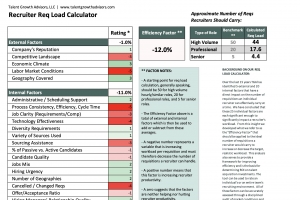Employee Engagement Action Plans are Key, but Only If Leaders Avoid These Pitfalls

In theory, employee engagement plans are a great investment and yield a valuable return through higher levels of retention, engagement and employee productivity. But in practice, let's face it, these efforts can often do just the opposite. Why? A lack of employee engagement action planning.
To break down the problem further, let's review what's involved in a typical employee engagement plan:
Identifying questions to ask employees in order to assess how 'engaged' they are with their work
Launching a (typically) widespread survey effort throughout an organization
Analyzing the results by business group, geography, employee types, etc. to identify critical themes and areas that merit targeted investment and improvement
Implementing measurable, sustainable action plans through leaders throughout the business
Ah . . . there's the problem: that last item.
Establishing employee engagement action plans are where things most often fall apart. Here are five reasons why:
- No Senior Leadership Sponsorship. If engagement isn't seen as a key element of a talent strategy, and senior leaders aren't aligned on the importance of the effort, the desired outcomes, their role in the process - and what their managers are on point to do - employee engagement plans are destined to fail.
- Lack of strategic focus. In an effort to "fix" engagement or retention issues, the process overshadows the outcome. When employee engagement as a process becomes more important than the outcome (e.g., employee engagement action planning and measurable change), the process ultimately fails.
- Poor project management. Often, talent management resources responsible for employee engagement focus on the up front steps - and fail to plan for or manage the action planning aspect of engagement efforts.
- Lack of employee engagement action planning know-how. Sometimes, it's simply about lacking the capability to manage the action planning process, communications, tools and measures. It's not that hard, but if you've never done it before - it can be slow, painful and often ineffective.
- No accountability. If managers aren't ultimately responsible for creating employee engagement plans and working them in a sustainable, measurable way, then efforts and outcomes won't merit prioritization.
Before beginning employee engagement efforts, senior HR leaders must discuss the inevitable - negative outcomes related to unclear roles, lack of training and development, poor management processes, etc. The worst thing companies do is survey their employees about what they'd like to see changed - and then do nothing to change it. So if a company isn't prepared to resolve such issues either because of lack of commitment or resources, it's not worth beginning the process.
But there are great practices out there to help companies committed to improving employee engagement and retention. We have a few up our sleeve in fact.
What have you seen work? What would you recommend HR leaders do better management employee engagement action planning?
Share this Article
Learn more about our unique approach to Talent Strategy Formulation.



